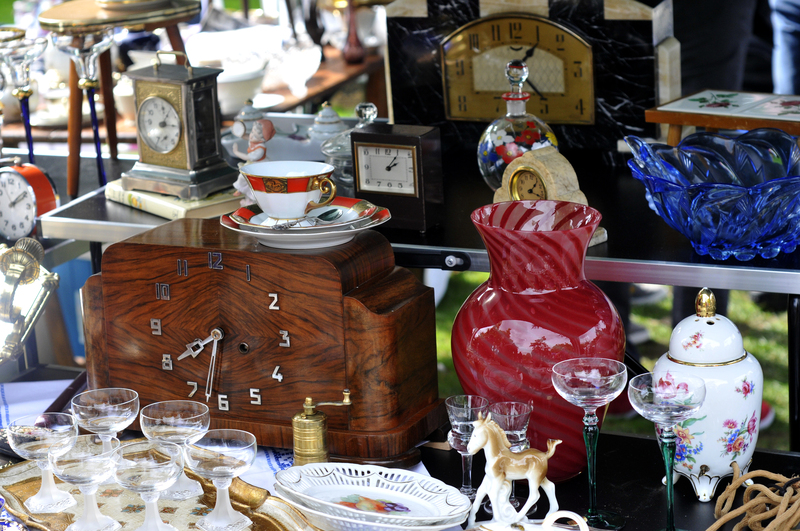How Local Charities Can Benefit from Your Old Cookware
Have you ever wondered what to do with your old pots, pans, and kitchen utensils when it's time to upgrade? Instead of tossing them out, there's a more meaningful way to declutter your kitchen: donating old cookware to local charities. Not only does this kind action support your community, but it also helps minimize environmental waste. In this comprehensive guide, we'll explore how local charities benefit from your old cookware, where you can donate, and why your contribution matters.
Why Donate Used Cookware?
Millions of households regularly update their kitchen equipment, but the question remains--what happens to the outgrown or lightly used items? While many find their way to landfills, donating your old cookware creates numerous positive ripple effects:
- Supports those in need: Your unused pots and pans could serve someone cooking their first meal in a new home.
- Reduces landfill waste: Cookware is typically made from non-biodegradable materials like metal and plastic, which take centuries to decompose.
- Saves resources: Extending the life cycle of kitchenware contributes to an eco-friendly lifestyle.

How Local Charities Use Your Donated Cookware
Charitable organizations and community groups are always looking for practical household items. Your gently used cookware can be a lifeline for:
1. Homeless Shelters and Transitional Housing Programs
Shelters often help families and individuals get back on their feet. Equipping newly housed clients with basic kitchen necessities enables them to cook, save money, and rebuild their independence.
2. Soup Kitchens and Community Meal Sites
Many local charities operate kitchens that provide hot meals to those who can't afford them. Quality cookware donations allow these organizations to prepare meals efficiently and safely. In many cases, buying new cookware would be prohibitively expensive, so donations fill a vital gap.
3. Thrift Stores That Support Nonprofits
Some organizations run thrift stores to raise funds for their charitable activities. Donating your old pots, pans, and utensils gives these stores useful inventory they can sell at affordable prices to families in need. The proceeds go directly to funding critical services like food pantries, educational programs, and medical clinics.
4. Resettlement Agencies for Refugees
Refugee families arriving in a new country often arrive with little more than their clothes. Donated cookware can mean the difference between eating out (which is costly and unsustainable) and being able to prepare familiar, healthy meals at home. Your lightly used skillet or saucepan can become a valued, daily necessity in a new life.
Types of Cookware That Charities Need
Not sure what kinds of kitchenware you can donate? Most charities gladly accept a variety of items, provided they're clean and in usable condition. Here's a helpful list:
- Pots and pans (all sizes, with or without lids)
- Baking trays and sheets
- Cooking utensils (spatulas, ladles, tongs, serving spoons, whisks, etc.)
- Colanders and strainers
- Kettles and saucepans
- Casserole dishes and roasting pans
- Cutlery sets and cutting boards
Note: Always inspect your items for chips, severe dents, or rust. If cookware is no longer safe to use, contact your city's recycling center to ensure proper disposal.
How Donating Old Cookware Benefits Charities & the Community
- Immediate Impact on Families in Need
- Starting over after a crisis is daunting. Having essential kitchen tools helps newly housed people create stability and save money on meals.
- Reduces Operational Costs for Charities
- When organizations can allocate more budget to programs by receiving cookware donations, resources stretch further, benefiting more people.
- Promotes Sustainability
- Reusing items decreases landfill waste and supports environmentally safe practices.
- Builds a Stronger Community
- When you donate old cooking equipment to local charities, it fosters a culture of giving and social responsibility.
Tips for Preparing Your Cookware for Donation
To make your contribution even more meaningful and useful, follow these tips:
- Clean Thoroughly: Scrub off any food residue, grease, or stains before donating.
- Check Functionality: Make sure handles are secure, and lids fit snugly.
- Package Safely: Wrap breakable items (like glass baking dishes) in newspaper or bubble wrap.
- Label Sets: If you have matching sets, try to keep them together for easier use by recipients.
Where and How to Donate Old Cookware Locally
Your community is likely served by several organizations that welcome such donations. Here's how to find them:
1. Homeless Shelters
- Use online directories (such as Homeless Shelter Directory) to locate local shelters.
- Call ahead to ensure they have capacity for cookware items and to ask about any specific needs or requirements.
2. Food Banks and Soup Kitchens
- Find local food banks through national sites like Feeding America.
- Some prefer new or gently used items due to hygiene standards--check before donating.
3. Thrift Stores Supporting Charities
- Organizations like Goodwill or Salvation Army accept cookware, but small local charities with thrift stores may especially value your donations.
- Look for community-run shops where proceeds benefit local causes.
4. Faith-Based Groups and Community Centers
- Many churches, temples, mosques, and synagogues conduct household drives at certain times of the year.
- Check bulletin boards or websites for drop-off details.
5. Refugee and Immigrant Support Services
- Search for resettlement agencies or mutual aid societies supporting new arrivals in your region.
- Contact the agency directly or visit their website to view ongoing needs and guidelines.
Frequently Asked Questions About Donating Used Cookware
Is all cookware accepted by charities?
While most nonprofits are grateful for gently used kitchenware donations, some may have limitations due to storage, safety, or hygiene. Always call ahead or check their website for specific guidelines.
Can I claim a tax deduction for donating old cookware?
Donations to registered 501(c)(3) nonprofits are generally tax-deductible. Remember to ask for a receipt and consult your tax advisor for details.
What about nonstick pans with scratches?
Some charities may not accept chipped or significantly scratched nonstick pans due to health concerns. If the damage is minor, ask the organization; otherwise, recycle the cookware responsibly.
Creative Alternatives for Donating Cookware
- *Host a neighborhood swap:* Exchange pots and pans with friends or neighbors before donating the remainder to charity.
- Include cookware in community free tables or "Buy Nothing" groups: Many towns have local Facebook or neighborhood groups for sharing housewares.
- *Organize a mini drive at your workplace, school, or place of worship and deliver collected donations together to maximize impact.*
Success Stories: Real Impact from Cookware Donations
Communities across the country have seen powerful benefits from cookware donations:
- Single parents moving into new apartments: Setting up a kitchen after homelessness is expensive. Donated frying pans, pots, and utensils ease the burden, allowing families to focus on other essentials.
- Community cooking classes: Nonprofits teaching nutrition and cooking skills rely on donated cookware for classes that empower participants to prepare healthy, affordable meals at home.
- Fundraising thrift shops: Sales of quality secondhand kitchenware generate critical revenue to sustain local food banks, shelters, and direct aid programs.

How to Encourage Others to Donate Used Cookware
Want to amplify your impact? Spread the word among your friends, relatives, and coworkers by:
- Posting before and after kitchen declutter photos on social media, tagging the charity.
- Writing a quick guide or testimonial about your donation experience for a community newsletter.
- Inviting others to join you for a donation drop-off, especially during the holidays or back-to-school season.
Conclusion: Every Donation Makes a Difference
Donating old cookware isn't just about clearing space in your kitchen--it's a direct investment in your community's well-being. Whether you're helping a family prepare their first homemade meal after a setback or enabling a nonprofit to serve more hot meals, your gifts have lasting value.
When considering what to do with unwanted pots, pans, and utensils, think of the broader impact--local charities, shelters, and families truly benefit from your old cookware. Plus, you'll be joining a growing movement dedicated to reuse, sustainability, and kindness. Next time you revamp your kitchen, remember: your old cookware can provide much-needed support and hope for someone in your neighborhood. That is a gift that truly keeps on giving.
